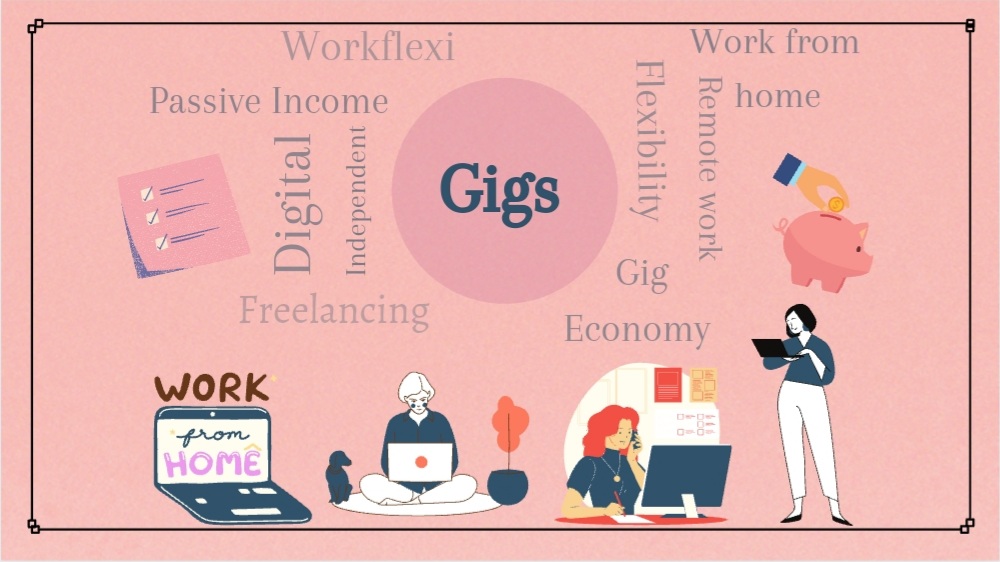5 Common Freelancing Mistakes That Could Be Hurting Your Career
Freelancing provides the flexibility to work from any location, create your own schedule, and select the projects you want to pursue. However, this independence also brings its own unique challenges. Unknowingly, a lot of freelancers commit error that can hamper their success and professional development.
In this post, we’ll discuss 5 common freelancing mistakes that could hurt your career and how to avoid them.
Mistake #1: Underpricing Your Services
When starting out as a freelancer, it’s tempting to lower your rates in order to land clients quickly. However, underpricing your services can do more harm than good. It often leads to burnout, frustration, and difficulty in sustaining a profitable business.
Why it hurts your career:
Charging too little not only undervalues your skills but also creates an unsustainable workload. Clients may expect more work for less money, which leads to long hours without the financial reward you deserve. Additionally, it’s difficult to raise your rates later on without losing clients who have become accustomed to lower prices.
How to avoid this mistake?
Research market rates for your specific niche, and set competitive but sustainable prices. Think about the value you offer and set your pricing appropriately. Moreover, you might provide several packages according to the complexity of the task.
In this manner, you may draw in customers while making sure your rates accurately represent your level of experience and the caliber of work you provide.
Mistake #2: Not Having a Clear Contract
Avoiding a formal contract while beginning a job is one of the most frequent errors made by independent contractors. Having a formal agreement is essential to safeguard both parties, even if you trust your customer.
Why it hurts your career?
Without a clear contract, you’re open to misunderstandings and disputes about deadlines, scope of work, and payment terms. This could lead to missed payments, unfulfilled expectations, or even legal issues. A lack of formal agreements may also make it harder to hold clients accountable if they don’t meet their obligations.
How to avoid this mistake?
Any project should always begin with a contract in place. Make sure that the project scope, terms of payment, due dates, and other relevant details are all written out in detail. To get you started, there are a lot of templates on the internet. If you’re not sure, think about getting legal advice to create a contract that works best for your company.
Mistake #3: Failing to Communicate Effectively with Clients
The foundation of any successful freelance assignment is communication. Ineffective communication can result in misunderstandings, missing deadlines, and disgruntled customers.
Why it hurts your career?
If you don’t keep your clients informed, they could feel neglected or unsure of the project’s status. Additionally, unclear communication about expectations can result in revisions, delays, and frustration on both sides. This affects your ability to build lasting connections as well as your reputation.
How to avoid this mistake?
Inform clients on a frequent basis with check-ins and updates. Set clear expectations at the beginning of the project and communicate any changes or delays in an honest and open manner. To stay in constant contact, make use of project management software, Slack, or email. If you’re unsure about anything, don’t hesitate to ask questions to ensure you’re aligned with your client’s needs.
Mistake #4: Overcommitting to Too Many Projects
Freelancers often struggle with the temptation to take on multiple projects at once, believing that more work equals more money. Overcommitting, however, might result in stress and lower the caliber of your job.
Why it hurts your career?
Taking on too much work means you may struggle to meet deadlines or deliver high-quality results. Clients expect freelancers to be reliable. If you don’t meet their expectations, your reputation could be affected. This might lead to losing clients and finding it harder to get new projects.
How to avoid this mistake?
Learn to set boundaries by assessing your workload before taking on new projects. Give high-paying or recurring clients priority, and make sure you have adequate time for each assignment. Rejecting a project is preferable to jeopardizing the caliber of your work and your relationships with clients. Additionally, consider working with a project management system to help you organize tasks and deadlines efficiently.
Mistake #5: Neglecting Personal Branding and Marketing
Many freelancers focus solely on client work and neglect building their personal brand and marketing their services. In the competitive freelancing market of today, building a solid personal brand is crucial to drawing in business.
Why it hurts your career?
Without marketing, you’re relying solely on word-of-mouth or existing client relationships to generate new business.This may restrict your development and make it more difficult to differentiate yourself from the competitors. Additionally, failing to invest in branding can result in missed opportunities to establish yourself as an expert in your field.
How to avoid this mistake?
Invest time in building your personal brand. Make a professional portfolio or website that highlights your abilities, offerings, and prior work. Make connections with prospective clients on social media and provide information about your area of expertise. Remember to request testimonials from pleased customers as this can contribute to credibility and confidence.
Opportunities for freelancing are amazing, but it’s important to steer clear of typical blunders that could prevent you from succeeding. By pricing your services appropriately, creating clear contracts, communicating effectively with clients, managing your workload, and focusing on personal branding, you can set yourself up for long-term growth and fulfillment in your freelance career.
Avoiding these mistakes will not only help you establish a strong reputation but will also make your freelance journey more rewarding and sustainable.
FAQs



